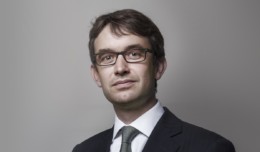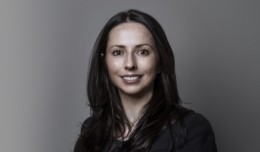When is an expert not an expert?
Angus Bunyan reviews this week’s judgment in Byrne and others concerning the safety of a number of fraud convictions which relied on the evidence of a now discredited expert witness. Angus was prosecution trial counsel in one of the cases (leading Julia Faure Walker) and appeared for the Respondent on appeal. Narita Bahra QC was defence counsel in Sulley and others and appeared for two of the Appellants on appeal.
- On Wednesday, the Court of Appeal gave judgment in seven conjoined appeals which resulted from the collapse of a major fraud trial at Southwark Crown Court in May of 2019 due to the wholesale discrediting of a witness called Andrew Ager (‘Ager’) who the Crown had sought to rely on as an expert in the carbon market: Sulley and others (unreported, but see BBC news piece here). The Court’s judgment (R v Byrne and others [2021] EWCA Crim 107) rehearses some important points of general application.
- By way of background, on a voir dire in Sulley it was established that Ager, (i) had received no expert witness training and had failed to sign the relevant expert declarations, (ii) considered it appropriate to withhold from the defence important concessions which qualified his evidence, (iii) held no formal qualifications and had not conducted an independent review of the market, (iv) ‘cut and pasted’ witness statements to give the impression he had been asked questions by the investigators when in fact he had formulated them himself, (v) made no attempt to comply with his disclosure obligations and, (vi) during a (unfortunately for him, recorded) joint conference improperly tried to dissuade a defence expert from testifying by making false and misleading statements.
- After the revelation of Ager’s lack of bona fides and of his ‘egregious’ behaviour, the Crown abandoned him as a witness (as they had to) and the defendants were acquitted. The trial judge made some excoriating remarks about Ager (should never be relied upon again, etc.) and about the need to ensure that experts were of suitable expertise and calibre. It subsequently transpired that Ager had given evidence in fourteen criminal trials between 2012 and 2019 and so the process of identifying potential appeals began. This culminated in a three-day hearing in December last year during which the Court considered submissions from seven individuals convicted in four of those trials.
- Although the circumstances of each case varied slightly, Ager had been called to provide expert evidence about the operation of the carbon market and specifically, (i) the price of carbon credits, (ii) the viability of carbon credits as investments (particularly to individuals), (iii) the absence of a genuine secondary market for carbon credits and, (iv) whether the brokerages dealing in these instruments were legitimate. The common submission of the appellants was that the discrediting of Ager in Sulley meant that his evidence in their cases was unreliable such that their convictions were unsafe. The Court of Appeal disagreed.
- LJ Fulford, delivering the judgment of the Court, found the following factors decisive.
-
- English law is ‘characteristically pragmatic’ as to the test for establishing expertise, the key question being is an expert peritus, rather than has he become peritus in a particular manner (R v Pabon [2018] EWCA Crim 420). Ager had built up considerable expertise in the carbon credit market by reason of working in the industry and therefore he should not be disqualified as an expert on the basis of his experience alone.
- Notwithstanding its deprecation of Ager’s failings in Sulley, the Court had to evaluate the fresh evidence (of Ager’s behaviour and demonstrable failings in Sulley) in the context of the remainder of the evidence in each case. The primary question, for the Court itself and not to be answered by asking what effect the fresh evidence would have had on the mind of the jury, remained whether that evidence raised a reasonable doubt as to the guilt of the appellant (Dial v Trinidad and Tobago [2005] UKPC 4).
- There had been no real dispute as to Ager’s evidence during any of the trials that led to these appeals. Furthermore, there had been no application by any appellant to call expert evidence on appeal to suggest that his evidence had been materially incorrect. Importantly, there was abundant other evidence that all of the investment schemes involving these appellants were indeed fraudulent.
- It would be untenable to conclude that the present convictions were unsafe because evidence that was and remains undisputed was given by an expert who in later proceedings was demonstrated to have behaved unprofessionally in the context of that subsequent case.
- Even applying the ‘jury impact’ question (see R v Burridge [2010] EWCA Crim 2847) as a precaution, the Court did not consider that the fresh evidence might reasonably have affected the decisions to convict.
- Unsurprisingly, the Court sought to remind all those seeking to instruct an expert (in particular the Crown) of the need to ensure that inappropriate witnesses are not called in criminal trials. Adherence to the various guidance promulgated by the CPS, together with the CPR and the CPD, should ensure that mistakes are not made.
- The reality is that identifying an appropriate witness in relatively obscure fields and where there may not be a recognised academic or professional qualification (such as the carbon market) is likely to be much more difficult than finding an expert in a more commonly occurring area such as handwriting or DNA, but this judgment serves as a salutary reminder that this is a responsibility that must not be abdicated.
Categories: News | Newsflash



